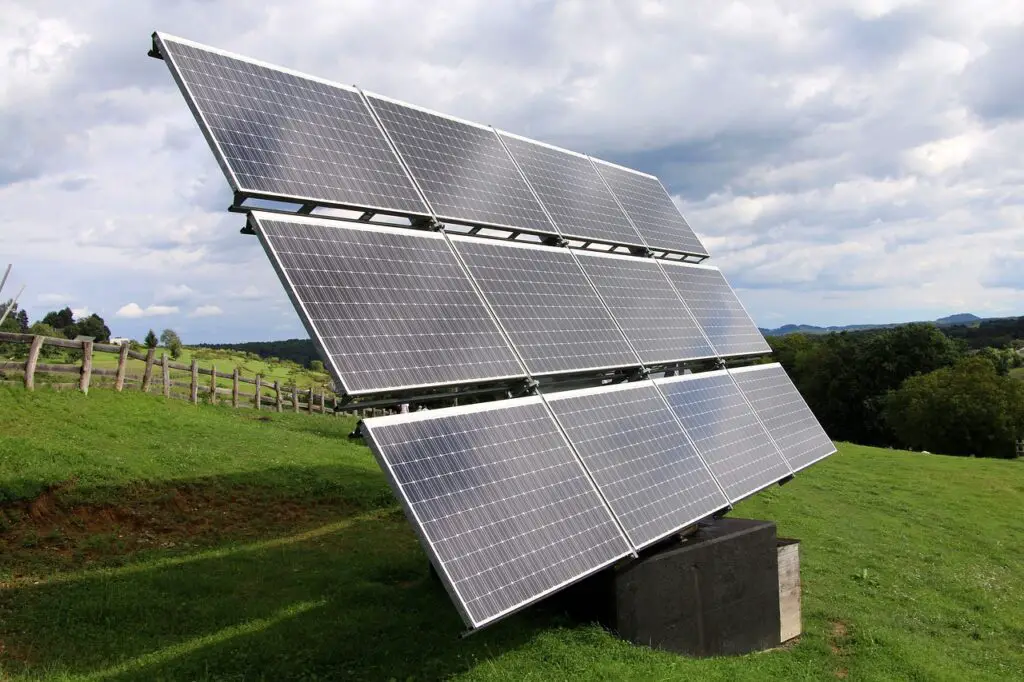You might believe that installing solar panels won’t need a generator since you can use the energy from your PV panels to keep the lights on in your home when the power goes out. That’s not the case, though.
All grid-connected solar systems are turned off when the electricity goes off. Therefore solar panels cannot be relied upon as a backup power source.
Solar battery storage or a backup generator should be installed in conjunction with the solar system to ensure an uninterrupted power supply during a blackout.
In this post, we will learn everything regarding do you need a generator if you have solar panels.
Do I Need A Generator If I Have Solar Panels?
Having solar panels and a grid-tied system still necessitates having a backup generator. Let’s pretend you can pull power from the grid in a blackout. If that happens, the panels will stop functioning.
When a solar system is connected to the power grid, any excess energy produced during the day is sent back to the grid, and the homeowner receives credit for that energy.
When there isn’t enough sunlight, they can utilize those credits to pull the power from the grid at night.
In the event of an outage, the power company’s safety protocols cut off power to the lines so that repair crews could do their work in peace.
This means that if a power failure is ever detected, the solar panels will immediately shut down.
A generator may not be necessary if you have a backup battery system in the event of a power outage.
However, there is always a chance that you’ll have a blackout and discover that your batteries are dead.
Knowing that you have a generator on hand in case something like this occurs can be a huge relief.
Alternatives
1. Solar Powered Generator
When the electricity goes out in your area, a solar-powered generator will kick on automatically to provide backup power to your home, just like any other standby generator.
The larger ones, called whole-house generators, can supply enough energy to run everything in your house, while the smaller ones can power only the essentials, like the fridge.
In comparison to solar batteries, generators have a greater negative impact on the environment due to their use of fossil fuels like natural gas and propane.
However, they are a dependable source of backup power for the home and can offer solar panel owners peace of mind.
2. Solar-Powered Batteries
Extra energy produced by solar panels on a sunny day can be stored in batteries for use later.
After the sun goes down, during an outage, or when electricity prices are higher than usual, you can use the energy stored in the batteries to run your home.
The size of your battery system determines how much emergency power the solar battery can give.
The longer the backup power supply survives and the more critical loads it would protect, the more storage you should consider installing.
With solar batteries, you can have a backup power source that doesn’t rely on fossil fuels because they run only on solar energy.
One of the key advantages of employing solar batteries as backup power is the ability to keep your solar panels running in an off-grid mode during a blackout.
If you have solar panels and a battery system, you can keep producing electricity and recharging the batteries during the day, even if the power goes out at night.
3. Inverter
A solar inverter is another alternative. As an optional piece of gear, some users prefer to have this set up alongside their existing setups.
You can keep your house powered by solar panels even after disconnecting from the grid by manually activating an inverter.
These inverters haven’t produced enough power to run an air conditioner, let alone anything else.
But you’ll have power for at least some appliances, including lights, a phone charger, and maybe even the fridge. Yes, it’s an improvement over doing nothing.
Solar Battery vs. Solar Battery
A solar battery can be installed as a backup power source for a residence instead of a generator in the case of an electrical blackout. Your reasons for installing a backup system will determine whether a generator and solar battery are the better options.
If you live in an area where power outages last for days and want to keep your home’s electricity on, a standby generator is a way to go. Most solar battery storage systems are more expensive than generators.
Solar batteries are the preferable option if you want to lessen your daily dependency on the utility while still having access to backup power for a few days that can power your most vital loads (such as your fridge, lights, including wall outlets to charge electronic devices).
Using solar batteries regularly is another way to get the most out of the solar energy your home collects. In addition, a battery can keep the solar panels operational even if the grid is down, which is not the case with a generator.
Conclusion
Homeowners who use solar panels to power their homes must have a backup power source. Gas generators are the most common form of backup power for homes with solar panels.
If you have solar panels and a backup generator, your panels won’t produce any energy when the power is out.
Installing a solar battery to keep your panels operational during a blackout is an expensive addition to a solar energy system.
If you want to make the most of the backup power your solar panels provide, you may set up a solar battery and a solar generator.
We hope you must have acknowledged everything regarding do you need a generator if you have solar panels.







